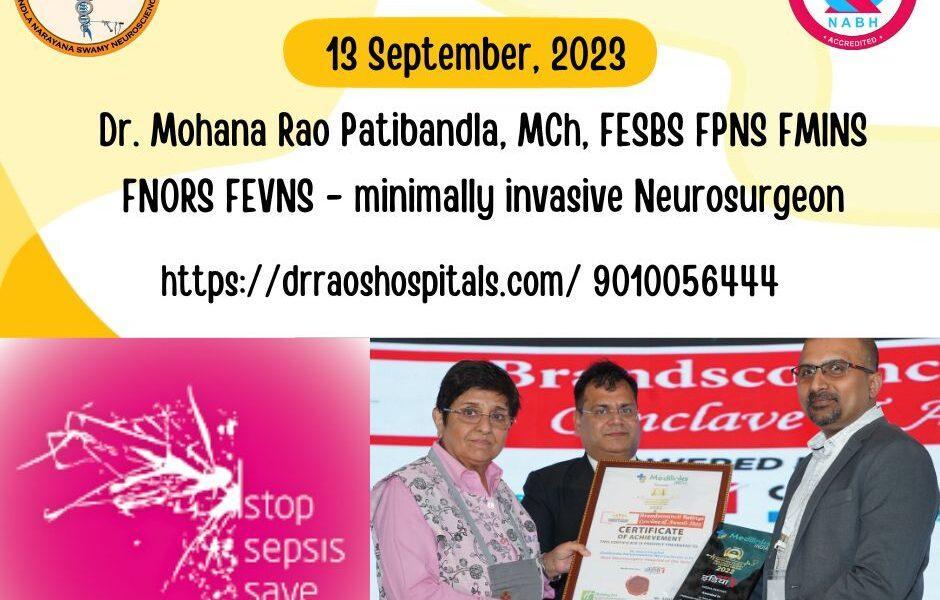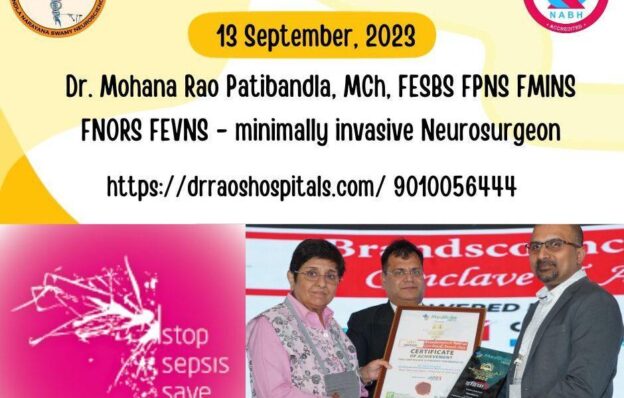Combating Sepsis on World Sepsis Day: Dr. Rao’s Hospital Leading the Way
Introduction
Every year, on September 13th, World Sepsis Day is a global reminder of the critical importance of recognizing and combating sepsis, a life-threatening condition affecting millions worldwide. Dr. Rao’s Hospital, renowned for its commitment to excellence in healthcare, is at the forefront of sepsis prevention and management. On this World Sepsis Day, let’s delve into what sepsis is, how it’s diagnosed, and how Dr. Rao’s Hospital’s superior care is making a difference.
Understanding Sepsis
A severe medical condition called sepsis, also known as septicemia, results from the body’s reaction to an infection. While the infection can start anywhere in the body, it often originates in the lungs, urinary tract, abdomen, or skin. What makes sepsis so perilous is its potential to cause widespread inflammation.
Etiology of Sepsis
The primary cause of sepsis is a bacterial, viral, or fungal infection. Common infections that can lead to sepsis include pneumonia, urinary tract infections, and skin infections. The invading pathogens release toxins into the bloodstream, triggering an alarmingly aggressive immune response.
Recognizing the Symptoms
Sepsis can manifest with various symptoms, including fever, increased heart rate, rapid breathing, confusion, extreme fatigue, and organ dysfunction. Early recognition is vital, as prompt treatment significantly improves outcomes.
Diagnosis and Assessment
Diagnosing sepsis involves a thorough clinical evaluation, blood tests, and imaging studies. The Sequential Organ Failure Assessment (SOFA) score helps gauge the severity of organ dysfunction. Timely diagnosis is a hallmark of Dr. Rao’s Hospital’s approach to sepsis management.
Managing Sepsis
Sepsis management demands a multidisciplinary approach. Dr. Rao’s Hospital excels in offering the following components of care:
- Source Control: Identifying and treating the source of infection, often through surgery or drainage, is crucial.
- Antibiotics and Antifungals: Administering appropriate medications to target the causative pathogens.
- Supportive Care: Respiratory support, fluid resuscitation, and medications to stabilize blood pressure.
- Nutritional Support: Ensuring patients receive adequate nutrition to support their immune system.
- Early Rehabilitation: Initiating physical therapy and rehabilitation as soon as possible for a smoother recovery.
Prognosis
Early intervention is pivotal for a favorable prognosis in sepsis cases. Dr. Rao’s Hospital’s commitment to swift and effective treatment significantly improves survival rates and reduces long-term complications.
Why Dr. Rao’s Hospital Shines in Sepsis Care
- Expertise: Dr. Rao’s Hospital boasts a team of highly skilled and experienced physicians, nurses, and specialists dedicated to sepsis management.
- Advanced Technology: The hospital is equipped with state-of-the-art diagnostic and therapeutic tools to aid in rapidly diagnosing and treating sepsis.
- Timely Care: Recognizing the urgency of sepsis, Dr. Rao’s Hospital prioritizes rapid intervention to halt its progression.
- Patient-Centered Approach: Dr. Rao’s Hospital understands the emotional and physical toll sepsis can take. Their patient-centered care focuses on both treatment and patient well-being.
Conclusion
On this World Sepsis Day, we’re reminded of the importance of sepsis awareness, early detection, and effective treatment. Dr. Rao’s Hospital’s unwavering commitment to sepsis care saves lives and improves outcomes. Sepsis may be a global health challenge, but with dedicated institutions like Dr. Rao’s Hospital leading the way, hope for a brighter, healthier future exists.


